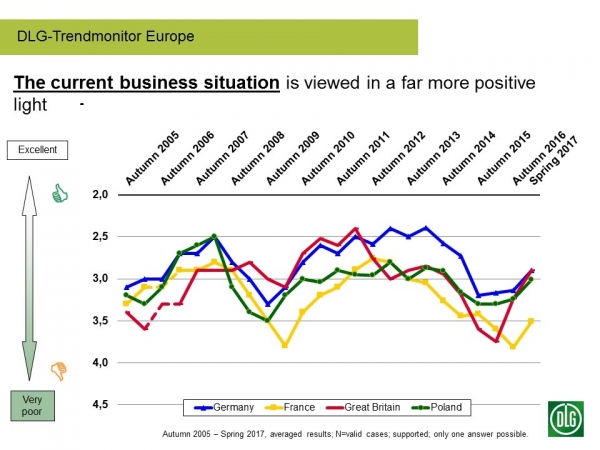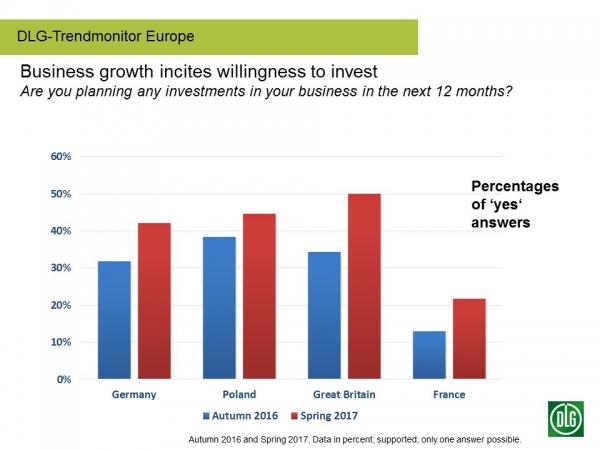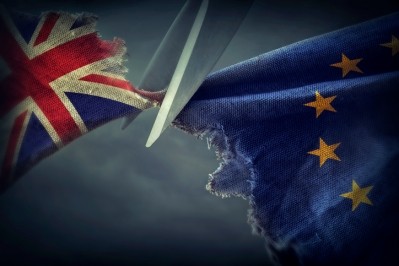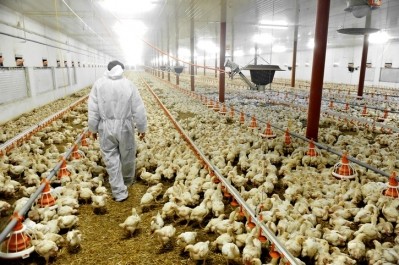Signs of confidence return to EU farming landscape, DLG sees renewed willingness of farmers to invest
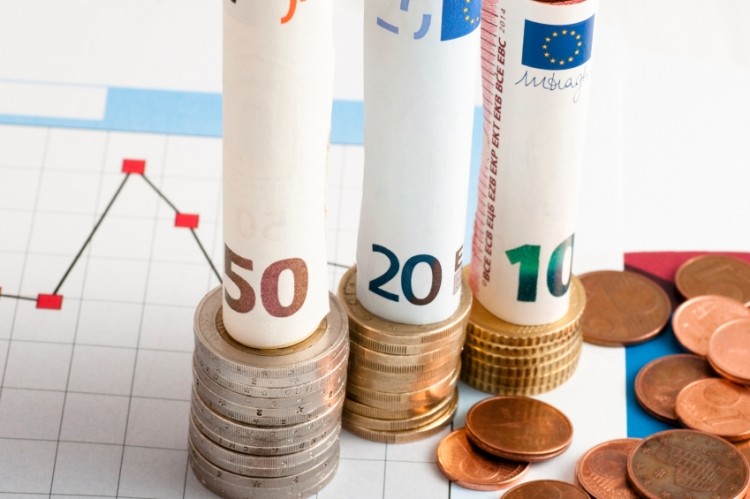
The DLG Trendmonitor Europe survey, conducted this spring by the German Agricultural Society, tracked the views of 700 German, 700 French, 500 Polish and 350 British arable, dairy and fattening pig producers. The poultry sector was not part of the review.
The poll shows the sense of despondency that prevailed in those agricultural segments in 2016 has now lifted, said the German organization.
Dr Achim Schaffner, DLG director of economics, explained the upswing was due to the improved market situation for cereals, milk and pork.
A shortage of pigs compared with the previous year has been accompanied by continuing strong demand. With exports particularly buoyant, pig farmers across the EU can expect strong prices, according to the DLG report on the survey.
In addition, the profit margin in pig farming has improved. Rising pig prices since the start of the year contrast favorably with falling costs for protein feeds and sustained moderate prices for feed grain. This has improved the overall profitability of pig production, noted the DLG.
Milk is also in short supply, with EU-wide milk supplies down on last year, and this situation is compounded by the fact that supplies from the world's leading milk exporting countries are below last year's level, it said. Although milk exports from New Zealand are starting to pick up again, this current tighter supply situation, combined with dynamic growth in cheese and butter exports, is commanding higher prices.
Despite the uncertainties surrounding Brexit and its impact on agricultural policies, farmers in the UK are also optimistic about conditions for expansion. “They hope that Brexit will cut red tape and give businesses more decision-making autonomy, which could strengthen the competitiveness of producers.”
The weak pound sterling is helping their case as well, added the DLG.
French farmers are, significantly, more confident about business growth in the coming months.
“Rising pork exports and the improved situation in the dairy market have restored confidence in further business growth. Conditions are significantly better than in 2016, when the economic climate was shaped by poor grain yields and low milk prices. Farmers in France also hope that the recent introduction of origin labelling for milk and meat will boost domestic sales.”
The survey also reported renewed confidence among German dairy farmers, with exports of cheese, and butter expected to remain buoyant.
Willingness to invest
The poll also indicated that the economic turnaround has significantly boosted the appetite for investment among the farmers in all four countries.
It revealed that, in Germany, 42% of farmers polled plan to invest within the next 12 months (+10 percentage points compared with autumn 2016), 45% in Poland (+7 percentage points), 50% in the UK (+16 percentage points) and 22% in France (+8 percentage points).
However, despite current growth, willingness to invest in Germany, Poland and France remains below the average level for the past 10 years, reported the DLG. “Having struggled with low prices for two years, livestock farmers are still focusing on strengthening their solvency.”
In contrast, the willingness to invest in the UK is now at the same level as the boom period of 2010 to 2014. British farmers are preparing for their exit from the EU and strengthening their competitiveness through investments, reported the DLG.
Farmers in Germany and the UK are stepping up investments in field equipment, while farmers in France are focusing on investments in animal husbandry and renewable energies. Farm managers in Poland, meanwhile, are reducing investments in bioenergy and increasing them in on-farm and field equipment.
Clouds on the horizon
The DLG said there are still challenges on the horizon for farmers despite the generally more benign business environment. “German farmers need to maintain solvency in the face of fluctuating prices and to ensure social acceptance – issues that have preoccupied farmers in recent months as they have been working on suitable farm management strategies.”
Cutting production costs and the reform of the agricultural policy are the main hurdles facing British farmers, said the DLG. “Direct payments are expected to fall after Brexit, so farmers must cut costs to make up the anticipated shortfall. With investments aimed at improving productivity, farm managers in the UK are charting a post-Brexit course.”
No one issue dominates the picture in France, where farmers give equal weight to the challenges of ensuring liquidity, reducing production costs, reforms to the agricultural policy and the uncertain investment situation regarding tougher environmental and animal welfare standards.
Farmers in Poland see ensuring liquidity at a time of fluctuating prices and the uncertain investment conditions as their greatest challenge, added the German organization.
